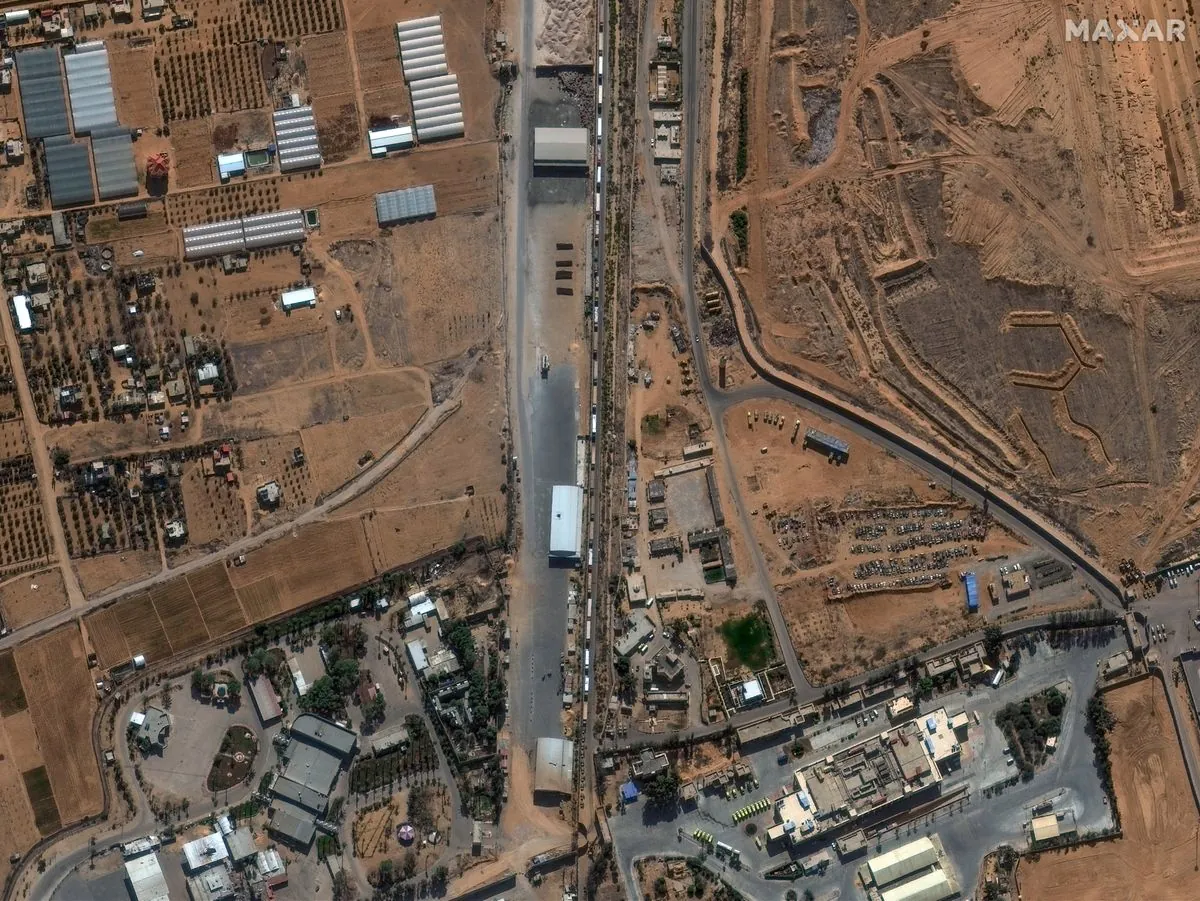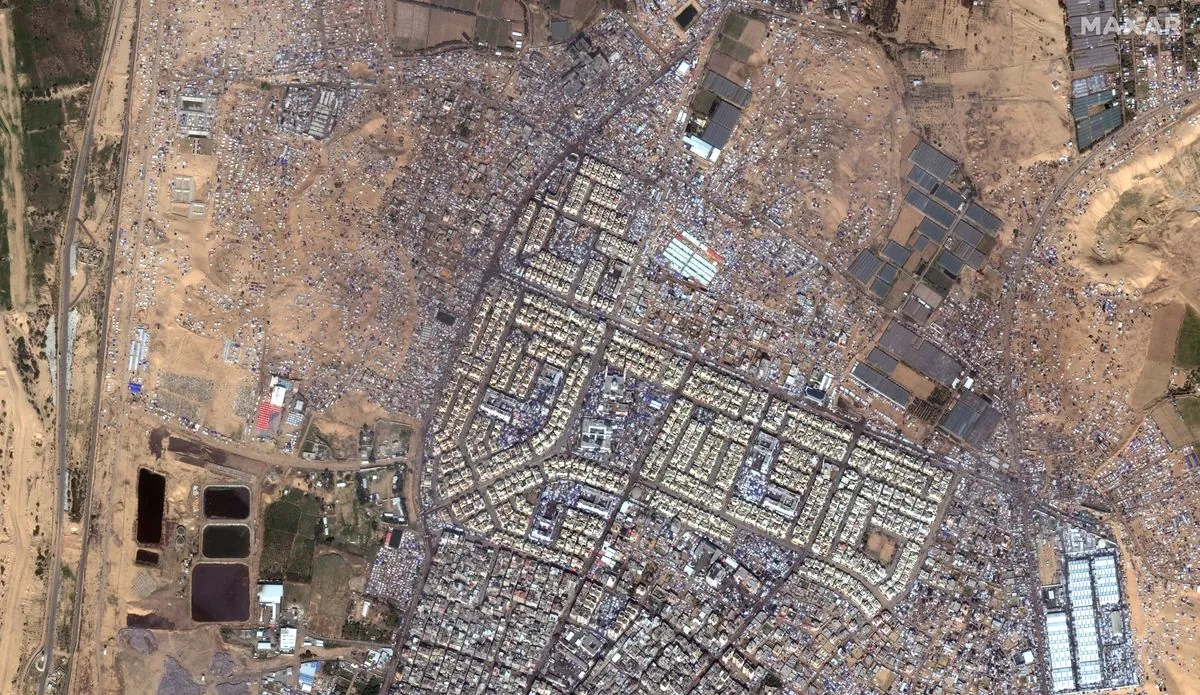Gaza Corridors Dispute Threatens Cease-Fire Talks in Israel-Hamas Conflict
Israel's demand for control over strategic Gaza corridors jeopardizes peace negotiations. Hamas and Egypt oppose, citing concerns over occupation and border security, as the 10-month conflict continues.

The ongoing conflict between Israel and Hamas, now in its 15th month, faces a new hurdle as negotiations for a cease-fire encounter significant challenges. At the heart of the dispute are two strategic corridors in Gaza that Israel insists on controlling, a demand that has met strong opposition from both Hamas and Egypt.
Benjamin Netanyahu's government is seeking to maintain a military presence in two key areas: the Philadelphi corridor along the Gaza-Egypt border and the Netzarim corridor separating northern and southern Gaza. These demands, which were not part of earlier cease-fire proposals, have emerged as a major point of contention in the peace talks.
The Philadelphi corridor, a narrow strip approximately 14 kilometers long, runs along the Gaza-Egypt border. Israel claims this area is crucial for preventing arms smuggling into Gaza through underground tunnels. However, Egypt refutes these allegations, stating it has already destroyed hundreds of tunnels on its side of the border.

The Netzarim corridor, spanning about 6 kilometers, would effectively divide Gaza's northern and southern regions. Israel argues this separation is necessary to prevent militants from returning to the north, which has been largely isolated since November 2023.
Hamas, which has governed the Gaza Strip since 2007, vehemently rejects these demands, viewing them as a form of continued occupation. The group insists on a complete Israeli withdrawal from Gaza as part of any cease-fire agreement. Egypt, a key mediator in the talks, also opposes an Israeli presence along its border, citing concerns over the 1979 Israel-Egypt Peace Treaty.
"Any lasting Israeli presence in Gaza would amount to military occupation. We demand a complete withdrawal of Israeli forces from our territory."
The dispute over these corridors has complicated the U.S.-backed cease-fire proposal. Antony Blinken, the U.S. Secretary of State, has urged Hamas to accept the proposal, stating that Israel has agreed to its terms. However, the specifics of the proposal, particularly regarding the corridors, remain unclear.
The ongoing negotiations take place against a backdrop of severe humanitarian crisis in Gaza. With one of the highest population densities in the world and over 95% of its water undrinkable without treatment, the territory faces immense challenges. The conflict has exacerbated these issues, displacing the majority of Gaza's 2.3 million residents and causing widespread destruction.
Failure to reach a cease-fire agreement could have far-reaching consequences. The conflict has already resulted in significant casualties on both sides, with over 40,000 Palestinian deaths reported by Gaza health officials and approximately 1,200 Israeli casualties from the October 7, 2023 attack. Moreover, around 110 hostages captured during that attack remain in captivity, with their fate hanging in the balance.
The situation also carries the risk of escalating into a wider regional conflict. Recent targeted killings of a Hezbollah commander in Beirut and a Hamas leader in Tehran have heightened tensions, with the possibility of retaliatory strikes by Iran or Hezbollah looming large.
As negotiations continue, the international community watches closely, hoping for a resolution that can bring an end to the devastating conflict and pave the way for lasting peace in the region.


































